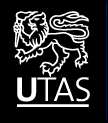Centropages bradyi
Wheeler (1900)
Download a fact sheet for Centropages bradyi (PDF 601KB)
Taxonomy
| Phylum | Arthropoda |
| Subphylum | Crustacea |
| Class | Maxillopoda |
| Subclass | Copepoda |
| Order | Calanoida |
| Family | Centropagidae |
| Genus | Centropages |
| Species | bradyi |
Size
- Female: 1.91 - 2.50 mm
- Male: 1.90 - 2.40 mm
Distinguishing characteristics
- Genital somite and P5 form
Male
- A1 extends beyond caudal rami by 3-4 segments
- Caudal rami large, symmetrical with epegf like projection between 2 outer terminal setae
- P5 right; chela projections of almost equal length, the proximal projection gently curved and narrow through length
- P5 left: exopodal segments 2-3 tapering and with 4 long spines
Female
- A1 extends beyond caudal rami by 3-4 segments
- May have a blunt dorsal projection at bottom of cephalosome
- Body inflated, appears slightly elumpyf, widest at pedigerous somites 1-2
- Posterior prosome corners rounded
- Genital somite ventrally inflated but without protrusions
- Caudal rami large, symmetrical with epegf like projection between 2 outer terminal setae
- P5 exopodal segment 2 inner edge spine stout and smooth
Distribution
- Epi-, meso- and bathypelagic
- Cosmopolitan
- Generally found more abundantly in warm (> 25 °C) waters
Ecology
- Found further north in Northern Hemisphere during El Niño years, associated with warm water
References
- Boxshall, G. A. and S. H. Halsey (2004). "An introduction to copepod diversity." Ray Society Publications 166: i-xv, 1-966.
- Bradford-Grieve, J. M., (1999) The marine fauna of New Zealand: pelagic calanoid copepoda: Bathypontiidae, Arietellidae, Augaptilidae, Heterorhabdidae, Lucicutiidae, Metridinidae, Phyllopodidae, Centropagidae, Pseudodiaptomidae, Temoridae, Candaciidae, Pontellidae, Sulcanidae, Acartiidae, Tortanidae. National Institute of Water and Atmospheric Research, Wellington, New Zealand.
- Conway DVP, White, R.G., Hugues-Dit-Ciles, J., Gallienne, C.P. and Robins, D.B. (2003). Guide to the coastal and surface zooplankton of the south-western Indian Ocean, Vol Occasional Publications No. 15. Marine Biological Association of the United Kingdom.
- Corral Estrada J., 1970. Contribucion al conocimiento del plancton de Canarias. Estudio cuantitativo, sistematico y observaciones ecologicas de nos Copépodos epipelagicos en la zona de Santa Cruz de Tenerife en el curso de un ciclo anual. Publnes Fac. Cienc. Madrid, Seccion de Biol., (A) 129: 1-280.
- Keister et al. (2005)
- Mazzochi (1995)
- Mori T., (1937) 1964. The pelagic Copepoda from the neighbouring waters of Japan. Second edition edited by S. Shirai., Tokyo: 1-150, pls 1-80.
- Razouls C., de Bovée F., Kouwenberg J. et Desreumaux N., 2005-2009. Diversity and Geographic Distribution of Marine Planktonic Copepods. Available at http://copepodes.obs-banyuls.fr/en

